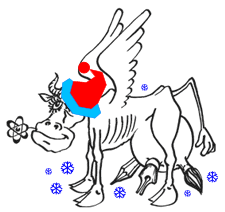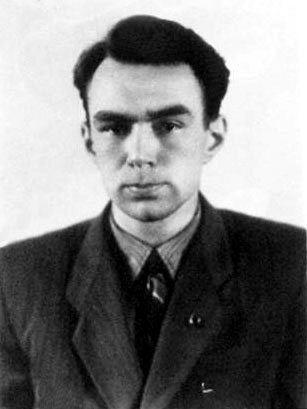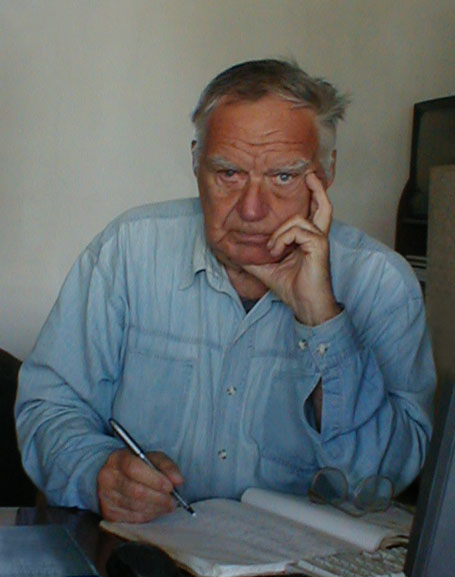Table of Contents
Read Book from " Pdf - OnLine " ( Yumpu, 7.5 Mbyte )
( The Whole Book )
Front Matter
I Introduction
1 The main principle of natural sciences
1.1 The Gilbert principle
1.2 Substitution of the Gilbert principle
2 Is it possible to construct a proton from quarks with an integer charge
II The electromagnetic model of neutron
3 Is neutron an elementary particle ?
3.1 Equilibrium in the system of relativistic electron + proton
3.2 Main properties of neutron
3.2.1 Spin of neutron
3.2.2 The magnetic moment of neutron
3.2.3 The neutron mass
4 Discussion
III Nature of nuclear forces
5 The one-electron bond between two protons
6 The molecular hydrogen ion
7 Deutron and other light nuclei
7.0.1 Deutron
7.0.2 Nucleus 3/2 He
7.0.2 Nucleus 4/2 He
7.0.2 Nucleus 6/3 Li
8 Discussion
IV Neutrinos
9 Introduction
10 Electromagnetic radiation
10.1 The vector potential generated by a magnetic dipole
10.2 The electric �eld generated by a magnetic dipole
10.3 The magnetic �eld generated by a magnetic dipole
11 Photons and Neutrinos
11.1 The Heaviside's function and its derivatives
11.2 Neutrinos and antineutrinos
11.3 Mesons as excited states of electron
12 About muonic neutrino
12.1 The Lederman's experiment
12.2 How to clarify the Lederman's experiment ?
V Conclusion
Back Matter
|
|
Author(s)
Boris V. Vasiliev was born in 1937 in Ekaterinburg ( Russia ).
His father - Vasilyi Volkov, scientist - geophysics - was killed during the Stalinist purges of 1937.
His mother - Nina A. Vasilieva raised her three children and gave them the higher education by herself after the death of her husband .
Boris Vasiliev graduated from the Physical-Techical Department of the Ural Polytechnic Institute and was postgraduate of Kurchatov Institute
( supervisor - Academician Isaak K. Kikoine ). PhD ( 1968 ), Dr. Sci. Sciences ( 1984 ). Author of over 100 scientific papers and several books.
He started to work as a research engineer and came to the Director of the Research Institute in Dubna for more 35 years.
His main achievements :
* The description of the super-phenomena - superconductivity and superfluidity - as a consequence of ordering zero-point oscillations.
* The theory of hot stars, built taking into account the gravity-induced electric polarization intrastellar plasma.
* The theory of Earth's magnetic field.
* The electromagnetic model of neutron and quantum mechanical nature of nuclear forthes.
* Electromagnetic nature of neutrinos.
* Discovery and study of thermo-magnetic effect in metals.
* The theory rf-SQUID.
* The experimental determination of the upper limit of the existence of an electric dipole moment of the electron,
in violation of CP and T invariance (the measurement results entered in the directory on the properties of elementary particles).
Abstract
William Gilbert formulated over 400 years ago a postulate that can be considered
as the main principle of modern natural sciences [1]:
all theoretical constructs that claim to be scienti�c must be veri�ed
and con�rmed experimentally.
Despite of past centuries, this principle has not lost its relevance today.
In the modern physics there are some conventional theories, which do not
satisfy to Gilbert's postulate [2].
In physics of microcosm there are models which can not be compared with
the measurement data as they do not allow to calculate the basic characteristic
parameters ( such as masses or magnetic moments ) of elementary particles.
In this article an alternative approach to some problems is considered.
It is shown that an attraction in the proton-neutron pair can occur due to
the exchange of relativistic electron. The estimation of this exchange energy is
in agreement with the experimental values of the binding energy of some light
nuclei. At that neutron is regarded as a composite corpuscle consisting of proton
and relativistic electron that allows to predict the neutron magnetic moment,
its mass and energy of its decay.
It is shown that the standard Maxwell's theory of electromagnetic field describes
a possibility to initiate in free space ( in empty ether ) a magnetic
y-quantum ( a magnetic soliton ), devoid of the electric component and having
spin h/2. A characteristic feature of the magnetic y-quantum is the weakness
of its interaction with matter, which is many orders of magnitude smaller than
that of usual y-quantum ( electromagnetic wave ). These properties suggest that
the magnetic y-quanta can be identified with neutrinos. On the basis of this it
manages to take a fresh look on the nature of n-meson and m-meson.
|

















